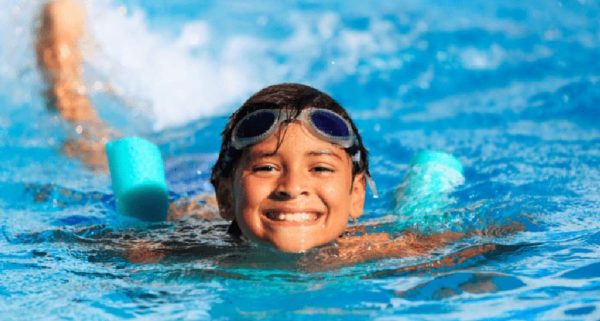Originally published Oct. 2, 2022 by YourTango.
By Stephen Almada
Even in good times childhood and adolescence are difficult. But the past three years have been especially rough on the young.
For years, there has been a global mental health crisis among children and adolescents that has only gotten worse. One year into the pandemic and a national emergency was declared for children and adolescents’ mental health.
 Unlike physical ailments, childhood mental health problems are more likely to go untreated and continue into adulthood. With uncertainty clouding the future of our children, we need social leadership to declare a national emergency to protect the mental health of our young.
Unlike physical ailments, childhood mental health problems are more likely to go untreated and continue into adulthood. With uncertainty clouding the future of our children, we need social leadership to declare a national emergency to protect the mental health of our young.
Research shows exercise improves the mental health of children and adolescents. Moreover, in clinical and healthy populations exercise effectively treats anxiety and depression; develops greater self-esteem, and coping self-efficacy under stress.
Consequently, I have argued for school-based formal exercise training (FET) to promote and protect the mental health of children.
Exercise is essential for physical and mental fitness — but there’s even more
Life is stressful, but none of us are born with the knowledge of how to cope with and function effectively under the stress of life. We, as a society, are obligated to provide our children with lifetime tools to maximize the enhancement benefits of stress.
However, before children can learn how to cope with and benefit from stress, they have to learn that they are cared for by adults. Regardless of race or socioeconomic status, caring builds trust and makes children eager to learn from parents, teachers, and others who demonstrate care for them.
FET in a caring environment is essential to preparing children to maximize the benefits of stress. The real-world stress of exercise is a logical continuation of the make-believe stress children confront while playing; imagining themselves to be superheroes, or some other superior power pitted against make-believe forces.
Play is serious business
Play reveals children’s aspirations to become something more than just a child. The rapture that seizes children when enthralled in play, reflexively compels them, as it does with artists and athletes, to boldly transform emotions into actions.
Under the spell of playing, there is no difference between make-believe and real. Children become heroic, beautiful, sublime creatures idealized in their imagination.
If some adult dares to break the spell, children will acknowledge they are only playing. Yet, the seriousness of play, in all its emotional, aspirational, and idealized aspects, primes children for taking on the stress of real-world forces so as to become the meaningful force they playfully imagine themselves to be.
FET safely guides children through the perilous transition from fantasies and pretending to contending with real-world forces.
Confronting real-world forces can be scary and even deadly, especially for children. Thus the learning climate in which your children learn how to contend with these forces should be a continuation of the safe and caring home environment you as parents provide for your children.
A well-trained exercise instructor will be sensitive to children’s normal fears and self-doubts and help children develop the emotional and cognitive skills to cope with self-defeating thoughts and focus on the task of mastering skills.
Caring makes learning
It is the expression of caring that reassures your children that the instructor is concerned about their well-being. Creating a caring/task-involved (C/TI) climate, the instructor nurtures children’s confidence to safely confront the challenge, and focus on successfully learning how to perform exercise and sport skills.
Similarly, children become more intrinsically motivated to learn in this climate as high effort and personal improvement (e.g., skill mastery) are emphasized and rewarded by the instructor. The intrinsic motivation of children gets a developmental boost when the instructor directs the focus of children on learning from mistakes (versus shaming) and thereby compelling them to keep trying rather than giving up.
Additionally, the C/TI exercise environment cultivates a fair and cooperative climate in which children help each other to learn from their mistakes, eliciting more positive interpersonal relations.
A lifetime of benefits
There is no disputing the life-long value of emotional and cognitive coping skills children develop in the caring climate of their FET. Learning to successfully apply these coping skills to stressful situations outside the controlled exercise setting (like taking a test), is part of FET.
In and outside the exercise setting, by applying these coping skills, children develop a sense of ownership as they increasingly experience their success, learning and mastering skills that were initially difficult, is the product of their efforts.
Moreover, children become self-empowered as their striving results in a growing number of positive experiences for themselves and their peers.
Boost Student Wellness with the IHT ZONE heart rate monitor:
[contact-form-7 id=”3054″ title=”How’d you find us?”]


